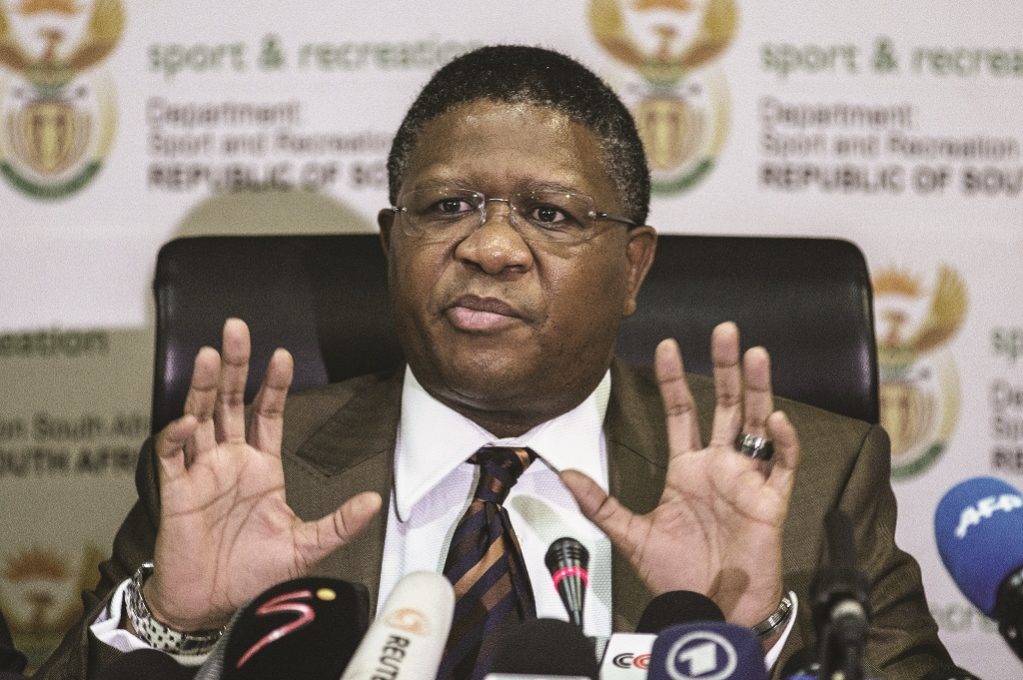It is a cold Saturday morning in Soweto, a township in south west Johannesburg. A short drive from where the World Cup final was played at Soccer City, three boys kick a soccer ball on its last life on a netball court in what used to be a fan park for the football tournament in South Africa in 2010. When World Cup fever grasped the country, these lads and hundreds of soccer fans, dressed in layers of clothes, gathered in this park to watch the games on a big public screen. The boys were all 10 years old then; they remember the camaraderie and piercing noise of the vuvuzelas.
But last year the screen was removed, leaving a gaping hole. A painting of a soccer ball on a lamppost is the only sign that the World Cup was once here.
It is exactly five years after the tournament came to Africa for the first time. It was the event that brought hope to the country, with promises to develop the sport and give business to local hospitality spots. People renovated their homes and let them out to tourists. But few are still in business. The promise of sustainable post World Cup business seems to have gone to the dogs. Several world class stadiums were built and upgraded to the tune of $1.1 billion. But today the majority of those stadiums are white elephants.
There was controversy around the tender processes to build these stadiums. Whistle blowers were murdered and several people went on trial. One prominent figure that was tried was Bobby Motaung, a Kaizer Chiefs manager and son of the club’s founder Kaizer Motaung. He was implicated in a tender saga for building the Mbombela Stadium, in Nelspruit, Mpumalanga province. Due to a lack of evidence, the case against Motaung was dropped in 2013.
A few weeks before the 5th anniversary of the World Cup in South Africa, it emerged that the country had paid $10 million to secure votes to win the bid for the event. This was never declared in public until the Federal Bureau of Investigation (FBI) indictment emerged alleging the money was a bribe to Jack Warner, the former Fifa vice president. It also identifies two South Africans as “co-conspirators” but their names are withheld. The South African government denies there was a bribe. According to a letter written on March 4, 2008, by Local Organising Committee president, Molefi Oliphant, the money paid was a donation to the Diaspora Legacy Programme in the Caribbean.
A few days ahead of the FIFA annual meeting in Zurich on May 28, Swiss police arrested Warner and six other officials in the five-star Baur au Lac hotel. By the end of May, 14 people involved with Fifa were indicted in connection with wire fraud, racketeering and money laundering.
“[The South African Football Association] requests that the Diaspora Legacy Programme be administered and implemented directly by the president of Concacaf who shall act as a fiduciary of the fund,” it reads.
Warner, who was the president of Concacaf, and his co-accused are implicated in Fifa bribes that include awarding the World Cups in France in 1998 and South Africa in 2010. Chuck Blazer, a former Fifa official from the United States (US), has admitted to his involvement in these bribes after being implicated in the FBI investigation.
“How Warner took a $10-million bribe from South Africa in exchange for his vote is laid bare in six pages of a 164-page indictment made public in the US following the arrest of Fifa executives ahead of the corruption trial of the century,” says Ray Hartley, Editor At Large at the Times Media Group.
The South African Portfolio Committee on Sport and Recreation has called for the Minister of Sports and Recreation, Fikile Mbalula, to summon the former members of the Local Organising Committee before parliament.
“The allegations contained in the indictment are yet to be proven in a court of law. But, the evidence is mounting that South Africa bribed its way to hosting the World Cup,”
says Hartley.
He also says the former organizing committee members are not accountable to parliament, but to the minister.
“It is a bit paranoid to block them from publicly speaking about the allegations,” he says.
Dominic Chimhavi, the South African Football Association director of communications, says the allegations that South Africa paid a bribe to Warner are unfounded.
“They are baseless and untested and we request proof from anyone who has evidence to the contrary to come forward. Our bid campaign was run, by among others, late president Nelson Mandela and former President Thabo Mbeki and several government ministers, who are men of integrity,” says Chimhavi.
So, it appears the 2010 World Cup has vanished from Soweto but it is likely to be in the headlines and the FBI investigation for years to come.
